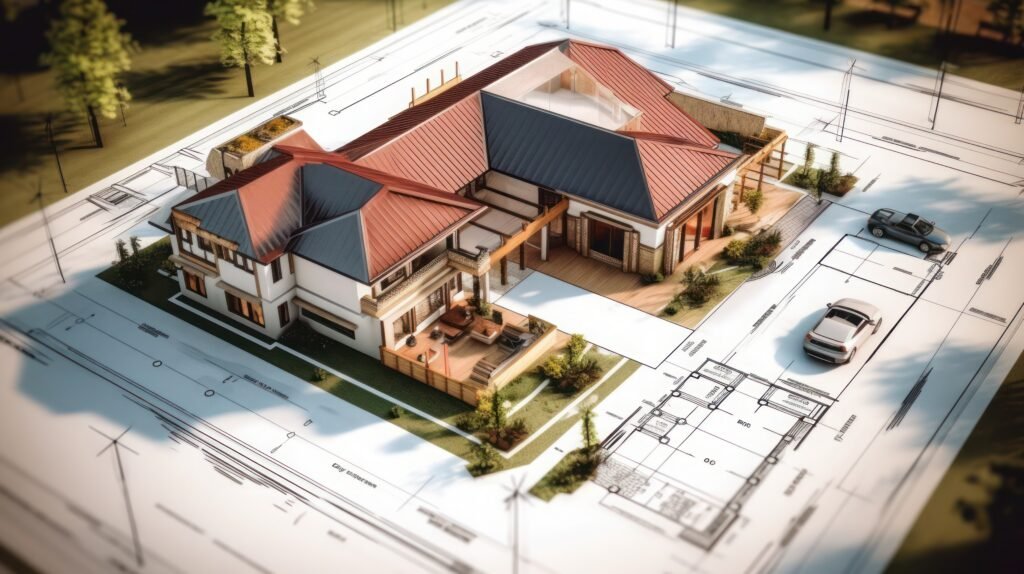Choosing the right contractor

When it comes to renovating your home, choosing the right contractor is one of the most crucial steps. The contractor you hire can make or break your project, so it’s essential to take the time to find someone reliable and trustworthy. Whether you’re doing a minor upgrade or a full-scale renovation, having the right professional by your side will ensure the job gets done correctly, on time, and within your budget. Let’s explore how to vet potential contractors, communicate your vision, understand contracts and costs, and build a strong relationship for a successful renovation.
Vetting Potential Contractors: How to Ensure You’re Hiring Someone Reliable & Trustworthy
Choosing the right contractor is one of the most important steps in any renovation. You want someone who’s reliable, skilled, and will deliver on their promises. But with so many options out there, how can you be sure you’re hiring the right person for the job? By taking the time to properly vet potential contractors, you’ll protect yourself from delays, unexpected costs, and shoddy workmanship. Let’s explore some steps you can take to make sure you’re hiring someone who’s trustworthy and capable of bringing your vision to life.

Check Their Credentials and Experience
One of the first things you should do when vetting a contractor is to verify their credentials. A good contractor should be licensed, insured, and bonded. Licensing means they’ve met the necessary qualifications and standards to legally work in your area. Insurance and bonding protect you in case of accidents or damages during the project. Be sure to ask for proof of both, and don’t hesitate to double-check with your local licensing authority if needed.
Experience is another critical factor to consider. A contractor with years of experience in the field is more likely to have a solid track record of delivering quality work. Ask them about their specific experience with projects similar to yours. For example, if you’re renovating a kitchen, you want someone who has successfully completed multiple kitchen remodels, not just general home improvements. This ensures they know the potential challenges and best practices specific to your type of project.
Ask for References and Read Reviews
Before hiring any contractor, always ask for references. Speaking directly with past clients can give you a clear picture of what it’s like to work with them. Ask their previous customers how the project went, whether it was completed on time and within budget, and how responsive the contractor was to questions or concerns. If the contractor hesitates to provide references, consider it a red flag.
In addition to references, take some time to read online reviews. Websites like Google, Yelp, and the Better Business Bureau (BBB) are great places to find reviews from real clients. While no contractor will have a perfect rating, patterns in the reviews will help you see how they handle their business. Consistent praise for punctuality, professionalism, and quality work is a good sign. On the other hand, if you see repeated complaints about communication problems or budget overruns, it may be best to move on to another option.
Review Their Portfolio of Work
A contractor’s portfolio is one of the best tools you have for evaluating their skill level and style. Most reputable contractors will have a portfolio of their past projects that they can share with you, either online or in person. This will give you a sense of the types of projects they specialize in and whether their aesthetic aligns with your vision.
When reviewing their portfolio, look for projects that are similar in scope and style to what you’re planning. Pay close attention to the quality of the work—are the finishes clean and professional? Does the design look cohesive and well-executed? If their previous work looks polished and aligns with what you have in mind, it’s a strong indicator that they can meet your expectations for your project.
Get Multiple Quotes and Compare

It’s always a good idea to get multiple quotes from different contractors. This not only helps you understand the average cost of your project, but it also gives you an opportunity to compare their professionalism and responsiveness. When getting quotes, make sure each contractor is quoting for the same scope of work. This will allow you to make an apples-to-apples comparison.
Be cautious of contractors who give you a significantly lower quote than others. While it might seem like a good deal, a low quote can be a red flag. It may mean they’re cutting corners on materials, rushing the job, or worse, they plan to hit you with hidden costs later on. Instead, look for contractors who provide a detailed, transparent estimate with a clear breakdown of costs for labor, materials, and other expenses. Transparency from the start is a good sign that they’ll be honest and upfront throughout the project.
Ask About Timelines and Communication
Another important factor to consider is how the contractor manages timelines and communication. A reliable contractor will give you a realistic estimate of how long the project will take and keep you updated on the progress. Ask them how they handle potential delays, and if they have a plan for communicating any setbacks.
Communication is key in any renovation project. You want to hire a contractor who is responsive, easy to reach, and proactive about keeping you in the loop. If they’re difficult to get ahold of during the initial stages, this may be a warning sign of poor communication down the line. Good contractors will prioritize keeping you informed about every step of the process, so you know exactly what’s happening and when.
Communicating Your Vision: Tips for Explaining Your Modern Design Ideas Clearly
When it comes to home renovations, you have a clear vision of what you want your space to look like. You’ve probably spent hours scrolling through Pinterest or Instagram, gathering ideas for the perfect modern design. But translating those ideas from your mind into reality can be tricky if you don’t communicate them effectively to your contractor. The key to a successful renovation is making sure your contractor fully understands your design vision. Let’s explore how you can confidently explain your modern design ideas and ensure your contractor delivers the results you’re dreaming of.

Use Visuals to Bring Your Ideas to Life
One of the best ways to communicate your modern design vision is through visuals. While words are important, showing your contractor images of what you have in mind can be even more effective. Start by gathering inspiration from websites, social media platforms, and magazines. Collect images of rooms, color schemes, furniture, and materials that reflect the style you want.
Create a mood board or digital folder with your favorite images. If you’re using Pinterest, you can easily share the board with your contractor to give them a sense of the overall vibe you’re going for. Whether it’s clean lines, minimalist furniture, or sleek finishes, visuals will help paint a clear picture of what you want.
Remember to include a variety of elements in your collection. Don’t just focus on the big things like furniture or wall colors. Include smaller details such as lighting fixtures, hardware, and accessories. The more comprehensive your visual references are, the easier it will be for your contractor to understand the specific look and feel you’re aiming for.
Be Specific About Your Preferences
While visuals are incredibly helpful, it’s just as important to be specific about the details that matter most to you. When discussing your design ideas with your contractor, try to avoid vague terms like “modern” or “stylish.” These words can mean different things to different people. Instead, get specific about the elements of modern design that resonate with you.
For example, if you prefer a minimalist look, explain what that means to you. Are you drawn to neutral color palettes, simple furniture, and uncluttered spaces? Or does your idea of minimalism include bold, statement pieces with clean lines? If sleek materials like glass and metal are a must, say so upfront.
When discussing materials, be clear about what you want. Do you prefer matte or glossy finishes? Would you like concrete countertops, wood floors, or marble accents? These details help narrow down the choices and ensure that your contractor knows exactly what to look for when sourcing materials.
Also, make sure to discuss any functional needs you have. Modern design isn’t just about aesthetics; it’s also about creating a space that works for your lifestyle. If storage is important, mention where you’d like built-in shelves or hidden cabinets. If lighting plays a big role in your design, share whether you want bright, open lighting or softer, mood-enhancing fixtures.
Stay Open to Professional Input
While it’s essential to communicate your vision clearly, it’s equally important to stay open to input from your contractor. A good contractor brings experience and expertise to the table, and they may have valuable suggestions or ideas that can enhance your design. Be willing to listen to their advice, especially when it comes to practical matters like materials, layouts, or timelines.
For example, you might want a particular type of flooring, but your contractor may suggest an alternative that’s more durable or cost-effective while still achieving the same look. Or they may offer suggestions on how to rearrange certain elements to improve the flow of the space without compromising on style.
A successful renovation is a collaboration. By keeping an open mind and being flexible, you’ll create a working relationship that allows for the best possible outcome. Balancing your vision with your contractor’s expertise will help ensure that the final result not only looks stunning but is also functional and well-executed.
Ask Questions and Clarify Details
Throughout the renovation process, it’s essential to stay engaged and ask questions whenever something is unclear. Don’t hesitate to seek clarification if you’re unsure about how a particular detail will be executed or if you need more information about certain materials or design choices.
For example, if your contractor suggests a specific type of tile for the bathroom, ask them to explain why they think it’s the best option and how it aligns with your design vision. If something doesn’t seem quite right, voice your concerns and discuss alternatives.
Regular communication throughout the project is key. Schedule check-ins or progress updates with your contractor to stay informed about how things are moving along. This ensures that any changes or adjustments are made early, rather than discovering misalignments once the work is done.
Contracts and Costs: Understanding Quotes and Avoiding Hidden Fees
Another critical part of any home renovation is understanding the contracts and costs involved. While it’s exciting to imagine your newly renovated space, managing the financial and legal aspects can feel overwhelming. However, with a clear understanding of how quotes work and what to look for in a contract, you can avoid hidden fees and ensure the process runs smoothly. Let’s explore how you can confidently navigate this stage and avoid any financial surprises.

Breaking Down the Quote: Know What You’re Paying For
When you receive a quote from a contractor, it can sometimes feel like you’re reading a foreign language. A good quote should be clear, detailed, and easy to understand. But what exactly should it include?
Start by ensuring that the quote breaks down the costs into specific categories. You want to see clear estimates for materials, labor, permits, and any other associated expenses. A lump sum with no details could be a red flag. You deserve to know exactly what you’re paying for at each step of the renovation.
Ask the contractor if the quote includes potential contingencies. Sometimes, unexpected issues arise during renovations, like hidden water damage or electrical problems. Some contractors build in a buffer for these unforeseen circumstances, while others may charge additional fees later. Clarifying this in the beginning will help you avoid any nasty surprises mid-project.
It’s also important to compare quotes from multiple contractors. Don’t simply go for the lowest bid—look at the breakdown and ensure you’re comparing apples to apples. A more expensive quote might include higher quality materials or a more experienced team, making it a better long-term investment.
Understanding the Contract: Get it in Writing
Once you’ve chosen a contractor, it’s time to sign a contract. This document is more than just a formality; it protects both you and the contractor throughout the renovation process. Before signing, make sure you thoroughly review the terms and conditions and ensure everything you discussed is clearly outlined in writing.
A well-written contract should include the following elements:
- Project scope: This section details exactly what work will be done, including the materials to be used, the specific tasks to be completed, and the final outcome you expect. Be as detailed as possible to avoid misunderstandings later.
- Timeline: The contract should include an estimated start and completion date, as well as a schedule for milestones or progress check-ins. Knowing the timeline helps you hold the contractor accountable if there are delays.
- Payment terms: This is one of the most critical parts of the contract. Ensure the payment schedule is clear, with defined milestones for when each payment is due. Avoid paying the full amount upfront. Instead, consider a payment plan where you pay as each phase of the project is completed. This ensures that the contractor delivers on their promises before receiving full compensation.
- Warranties and guarantees: What happens if something goes wrong after the renovation is completed? A good contractor will offer warranties on their work and materials. Make sure this is outlined in the contract, including the length of the warranty and what is covered.
- Change orders: Renovation projects often evolve as they progress. If changes need to be made along the way, this section should explain how those changes will be handled and how additional costs will be addressed.
Remember, everything you and your contractor agree upon should be documented. Verbal agreements are not enough when it comes to construction projects. If it’s not in writing, it’s not official.
Avoiding Hidden Fees: Ask the Right Questions

One of the biggest concerns homeowners face during renovations is the fear of hidden fees creeping in. To avoid this, it’s important to ask your contractor the right questions before signing the contract. This will help you identify any potential cost traps that could arise later.
Ask the contractor if the quote includes everything—materials, labor, and additional expenses like permits, inspections, or site cleanup. Sometimes, contractors will provide a quote that only covers the basics, leaving you to cover extra costs like waste removal or specialty finishes.
Also, inquire about possible unexpected costs. For example, what if the contractor finds an underlying issue with your home’s foundation or wiring during the renovation? Ask how these problems will be addressed, and whether you’ll be given options before proceeding with additional repairs.
It’s also a good idea to discuss potential price fluctuations for materials. Some materials may vary in cost depending on market conditions, so ask how the contractor handles these changes. They may offer a fixed-price contract, meaning you’re protected if costs rise, or they might include a price escalation clause, which could affect your budget.
Keeping the Budget on Track: Regular Communication is Key
Once your project is underway, keep an open line of communication with your contractor to ensure there are no surprises. Regular check-ins and progress updates will help you stay informed and prevent small issues from turning into larger, costly problems.
If any changes need to be made, make sure they’re documented through change orders. These formal requests will specify the modifications being made, along with any cost adjustments. This keeps everything transparent and prevents miscommunication about additional fees.
By staying involved and asking the right questions, you can manage your renovation budget effectively and ensure your costs stay within the agreed-upon amount. Don’t be afraid to speak up if something doesn’t seem right—clear, honest communication will keep your project on track and help you avoid hidden expenses.
Building a Good Relationship: How to Collaborate Effectively with Your Contractor for a Successful Renovation
The key to a successful home renovation isn’t just hiring the right contractor—it’s also about building a strong, positive relationship with them. While you bring your vision, your contractor brings the expertise, and working together as a team can lead to a smooth renovation process and impressive results. When you establish trust and maintain open communication, you’re more likely to see your dream project come to life. Let’s explore some ways to collaborate effectively with your contractor and make the entire experience as stress-free as possible.

Set Clear Expectations from the Start
From day one, clear communication is your best tool for avoiding misunderstandings and ensuring that everyone is on the same page. Before the work even begins, sit down with your contractor and discuss every detail of your renovation project. Go over your design ideas, budget, and timeline, and make sure they fully understand your goals.
Be specific about what you want to achieve, whether it’s a modern kitchen with open shelving or a contemporary bathroom with sleek fixtures. Use visual aids like mood boards, sketches, or photos to illustrate your design preferences. The more detailed you are, the easier it will be for your contractor to execute your vision.
Also, be upfront about any non-negotiable elements. If there’s a particular feature or material that’s a must-have for you, make it clear early on. This way, your contractor can factor those preferences into the planning process and avoid any surprises later.
Communicate Regularly and Stay Informed
Once the project kicks off, regular communication is essential for staying informed about progress and resolving issues quickly. While you don’t need to micromanage, scheduling regular check-ins with your contractor will help keep the project on track. These check-ins give you a chance to ask questions, address concerns, and make decisions as needed.
During these meetings, ask your contractor for updates on what’s been completed and what’s coming next. If there are any delays or unexpected issues, this is the time to discuss solutions. The goal is to create a collaborative environment where you and your contractor can address challenges together.
Don’t hesitate to ask for clarification if something doesn’t make sense. A good contractor will appreciate your involvement and will be more than happy to explain the process. By staying engaged and informed, you can catch any potential problems early and work together to find solutions.
Respect Their Expertise and Offer Flexibility
While it’s important to communicate your vision and preferences, it’s equally important to respect your contractor’s expertise. They’ve likely worked on countless projects and can offer valuable advice that could enhance your renovation. Be open to their suggestions, especially when it comes to practical matters like materials, timelines, or structural elements.
For example, if your contractor suggests an alternative material that’s more durable or cost-effective, consider it. Their experience might reveal options you hadn’t thought of, and their recommendations could help you save money or avoid future maintenance issues.
That said, flexibility is key in any renovation project. Unexpected challenges, such as hidden structural damage or delays in material shipments, can arise. Being flexible and patient when these bumps occur will go a long way in maintaining a positive working relationship. Trust that your contractor will do their best to address any setbacks while keeping the project moving forward.
Handle Issues with Respect and Professionalism
Even with the best contractor, challenges and disagreements may arise during the renovation. The way you handle these situations can significantly impact the overall outcome of the project. If you’re unhappy with something, whether it’s a delay or a design element that’s not turning out as you imagined, approach the issue respectfully.
Start by discussing the problem calmly and offering your contractor a chance to explain. Sometimes, there may be a reason behind the decision that you’re unaware of. Once you understand their perspective, work together to find a solution that works for both of you.
Avoid pointing fingers or assigning blame—renovations are complex, and problems can arise even in the best circumstances. By focusing on finding solutions rather than dwelling on mistakes, you’ll create a more positive atmosphere and keep the project moving forward.
Express Appreciation and Build Trust
Renovations can be stressful, but showing appreciation for your contractor’s hard work can go a long way in building a strong relationship. A simple thank you or acknowledging their efforts when things go smoothly can help foster mutual respect.
Building trust is also crucial. If your contractor feels trusted and valued, they’re more likely to go above and beyond to deliver quality work. Avoid micromanaging their every move; instead, trust their process and expertise. If you’ve vetted them thoroughly and communicated your expectations clearly, you can feel confident in their ability to execute your vision.
Conclusion
Choosing the right contractor is essential for a successful renovation, and collaborating effectively throughout the process is just as important. By setting clear expectations, maintaining open communication, and respecting your contractor’s expertise, you’ll foster a positive working relationship that ensures your project runs smoothly. Remember, a great renovation is a partnership—one where you and your contractor work together to bring your vision to life. When you build trust and stay flexible, you’ll achieve the modern, beautiful space you’ve always dreamed of.

Discover Modern and Contemporary Building
Challenge us with your aspirations, and let us create something extraordinary together. Contact us now to begin your journey to modern and contemporary living.
